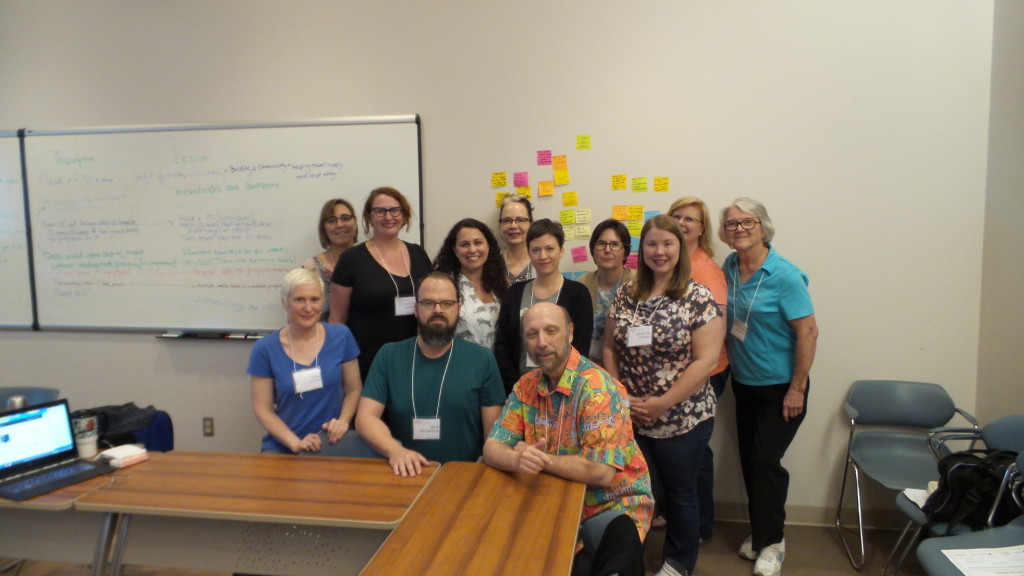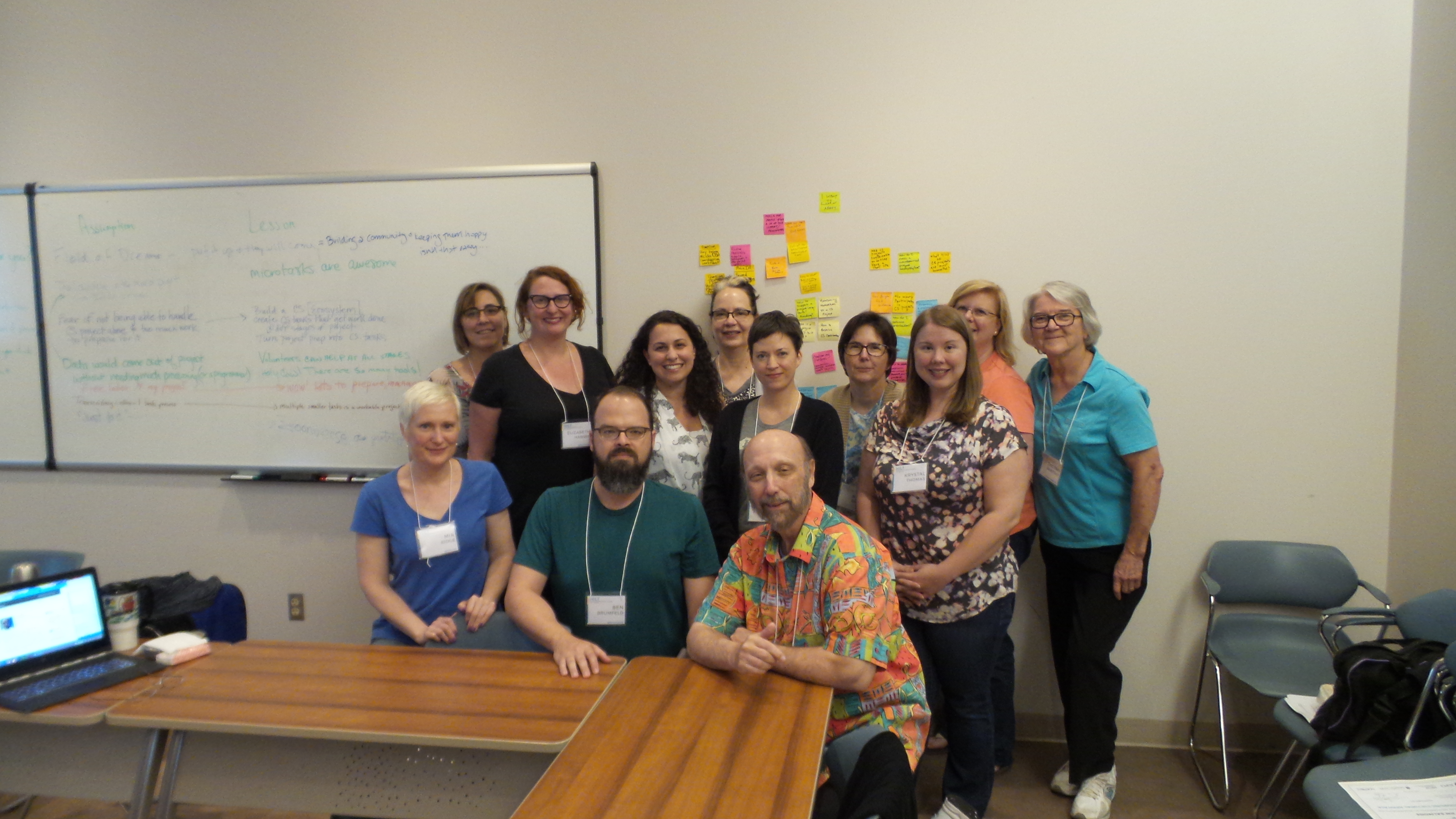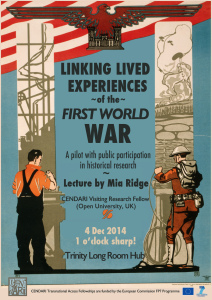Resources for the course on Crowdsourcing Cultural Heritage at HILT 2015 I'm teaching with Ben Brumfield.
Course Google Doc for collaborative note-taking, links, etc.
Flickr Group for HILT 2015 Crowdsourcing photos
Mia's storify of the week and the class presentation for the HILT Show and Tell.
Projects made in the class
- Ryan's Letters (Nancy Brown)
- College Radio Archive (Elizabeth Hansen)
- Bernier Archive (Elaine Paul)
- Ancient Aztecs (Virginia Cole)
- Tagging the Caribbean (Krystal Thomas)
- I Love Your Funny Face! (Nancy Stephenson)
- Blast from the Past (Wendy Johnson)
- Teach Robots to Read (Jim Salmons & Timlynn Babitsky)
- Loray Digital Archive (Julie Davis)
- NovelMapper (Cathy DeRose)
Well done @cmderose_wisc @nebrown63 @ElizHansen @ESPaul @vac11 @kmthomas06 @WendyJ1226 @HistorianOnFire @Jim_Salmons @TimlynnBabitsky + Nancy!
Monday: overview, speed dating
HILT Crowdsourcing Slides and Exercises for Monday
Session 2: links to find a project you love! For non-English language projects, try Crowdsourcing the world's heritage.
Prompts for thinking about projects:
- How clear was the purpose of the site? How well was it reflected in the 'call to action' and other text?
- How easy was it to get started?
- Were the steps to complete the task clear?
- How enjoyable was the task?
- Did the reward (if any) feel appropriate?
- Looking at the site overall, does the project appear to be effective?
- What is the input content? What is the output content?
- What validation methods appear to have been used?
- Who is the probable audience and what motivates them to participate?
- How does the project let participants know they're making a difference?
- Does the site support communication between participants?
- How was the site marketed to potential participants?
- Did the site anticipate your questions about the tasks?
HILT Crowdsourcing Slides and Exercises Tuesday
http://tinyurl.com/EminentScotsmen
HILT Crowdsourcing Slides Wednesday
HILT Crowdsourcing Slides Thursday
HILT Crowdsourcing Slides Friday

Continue reading "HILT Summer School 2015: 'Crowdsourcing Cultural Heritage'"

